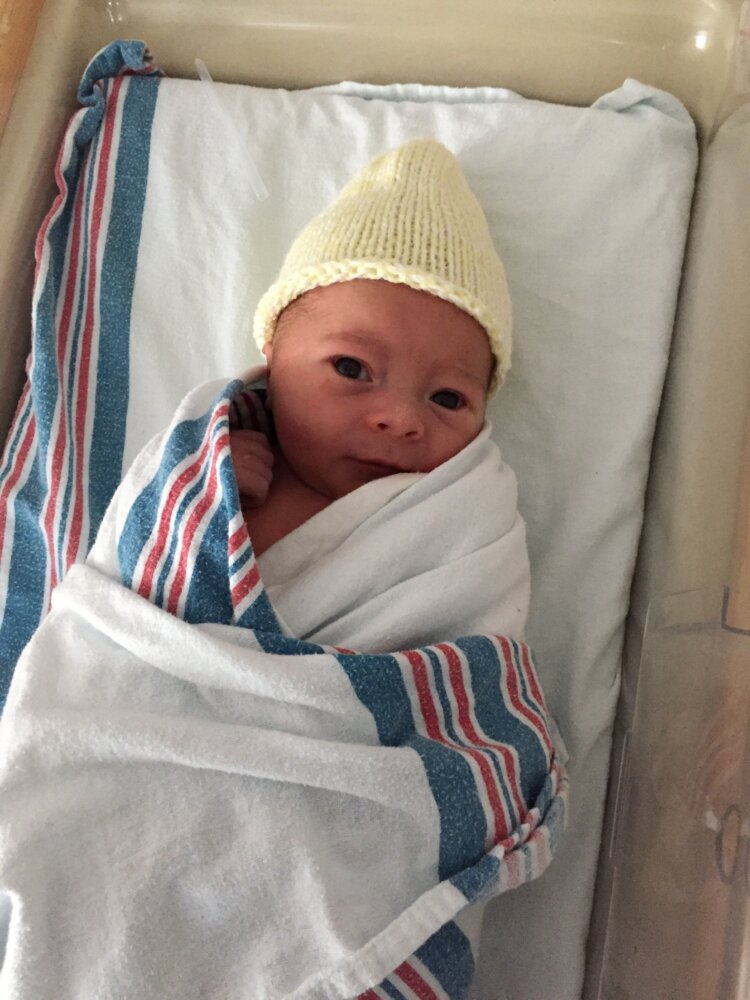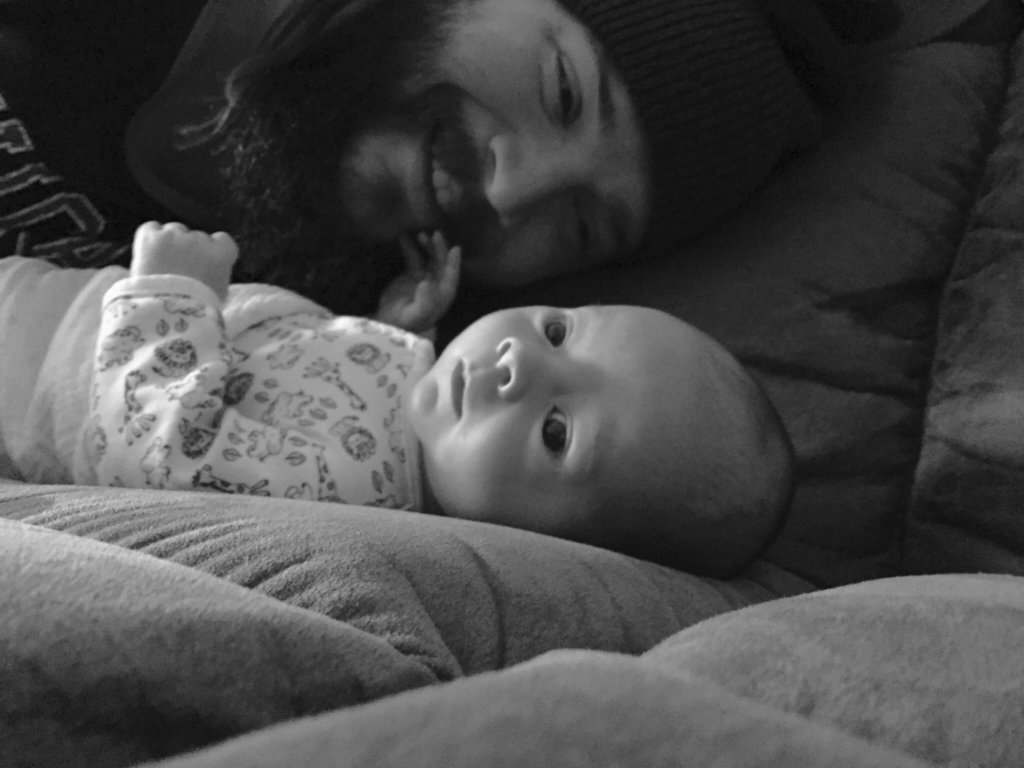
There’s almost nothing remarkable to this story about how my wife and I recently brought our first child into the world. From the early stages of pregnancy and 40+ weeks of care, to a delivery in the hospital and a discharge home the next day, everything about our journey— our “birth story,” if you will—is, other than the whole “bringing a life into this world” thing, rather bland. Bland is good in these situations, of course. If you have a compelling, unique birth story, it’s most likely traumatic or sad.
But at least one aspect of our birth story is, for too many people, out of the ordinary: All the care listed above didn’t cost us a dime. My wife and I are Canadian. Our baby boy, Eliot, was delivered in the beautiful town we call home: Guelph, Ontario. Ten days overdue, and after months of in-depth, compassionate, above-and-beyond care from our midwives, our baby boy was born in a hospital just two minutes down the road, and then we went home and didn’t have to anxiously wait for a bill to arrive in the mail.
This is not the case for Americans, which I imagine most of you are. Government funded, universal health care has been at the forefront of the political discourse in the United States for some time. After a steady stream of resistance, care expanded during Obama’s presidency, only to be cut back under Trump. The Canadian health care system has been used by numerous presidents and senators as an example of how universal health care can go wrong: long wait times, jam-packed hospitals, and people never getting the care they need. So here’s my story, from an actual Canadian, to help set the record straight.
When my wife and I found out we were having a baby in January, our first decision was this: did we want to enter the care of an OB—which would be coordinated through a hospital—or go with a team of midwives? Both options are covered by OHIP (The Ontario Health Insurance Plan), which is basically a universal plan for everyone who’s a citizen of the province. OHIP means every medical service is covered. We chose to go with midwives because we preferred the client-focused care; they meet with you nearly every week of your pregnancy to give you information and check on your baby, they deliver the baby in your home or in a hospital, and they provide care for weeks after the birth, too. They’ll visit your home and offer everything from medical checkups on your new baby to help with breastfeeding and anything else that’s new and daunting for parents.

Our two midwives were indispensable. They were always on call and able to answer any questions we had, and when it came time for the birth, one of them spent hours and hours with us as my wife was induced—our stubborn, overdue baby thwarted our home birth plans, cementing his rebellious streak early on—before then helping us deliver. Then, two days later, when we were certain something was wrong with Eliot because he wasn’t eating much and barely sleeping, she came to our house to check on him and then took us to the emergency room. She sat with us in the hospital from 8 p.m. to 3 a.m., advocating on behalf of our baby and insisting on blood tests to make sure that everything was fine. When he turned out to have low blood sugar, she coached us through a feeding program to get us back on track, coming to our house every day to weigh him, observe how he was feeding, and generally check in on our well-being. As of this writing, she’s seen us nearly every day for the first 12 days of Eliot’s life, and the support and knowledge has been invaluable.
RELATED: When your birth story doesn’t go as planned
Again, not a dime came out of our pocket to get this kind of care. In fact, by the time we went home after two overnight hospital visits—one for the labor, and one to correct Eliot’s low blood sugar—we hadn’t spent any money except for parking and cheap takeout food. The pregnancy and labor that was free of complications, that cost us nothing other than taxes that are still far lower than Nordic countries that boast a much more robust health care system, would warrant a bill of anywhere between $6,000 to $12,000 in the United States, depending on your insurance coverage.
My mind boggles at the size of that number. Having a baby is an extremely stressful time, even for the most prepared parents-to-be. There are all the appointments, the nausea, the baby proofing, the need to buy clothes and diapers and organize your whole life and work schedule around the unknown of caring for a newborn. Adding medical bills on top of that adds financial pressures, and it’s truly appalling any country that considers itself advanced would allow such a thing to happen.
Our baby is nearly two weeks old, healthy as can be, and we’re more tired than we’ve ever been. But we’re not broke. We’re not staring down a medical bill that will set us back for the first few years of Eliot’s life. We didn’t have to put our labor, our midwife care, and our hospital stays on a high-interest credit card. Instead, we’ve spent our time making sure our home and our relationship were ready, so that Eliot could arrive in a place filled with love and compassion and laughter, and universal health care helped us do that. Nobody’s story should be any different.


Grok Nation Comment Policy
We welcome thoughtful, grokky comments—keep your negativity and spam to yourself. Please read our Comment Policy before commenting.